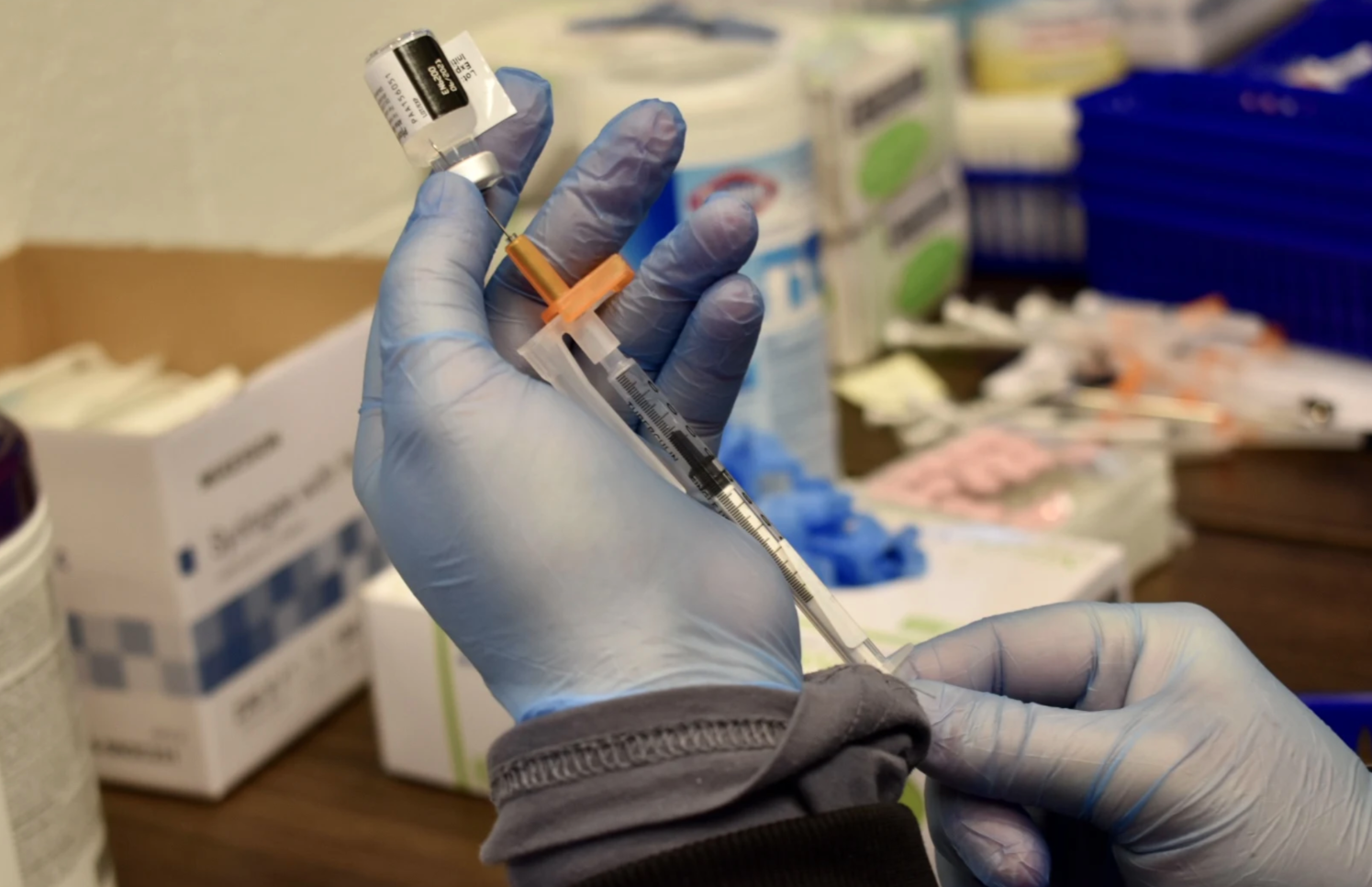
Courtesy of Regina Sung
Throughout the spring term, the University navigated changing federal and state guidelines in an effort to vaccinate students before they left campus.
Most Yale students became eligible to receive vaccines on April 1, after Connecticut Gov. Ned Lamont switched to age-based eligibility guidelines. Even after students were qualified to be vaccinated, the University faced logistical challenges in getting the necessary doses and encouraged students to seek vaccines elsewhere. On April 16, the Yale COVID-19 Vaccine Program received enough vaccines for every student.
Once the University had secured its own supply of vaccines for the Yale community, it mandated vaccinations for students, faculty, staff and postdoctoral trainees. Students must be fully vaccinated to return in the fall, while faculty, staff and postdoctoral trainees must be fully vaccinated by Aug. 1.
“For more than a year, we have anticipated the day we can return fully to on-campus teaching and learning,” wrote University President Peter Salovey and University Provost Scott Strobel in a university-wide email. “A high percentage of vaccine coverage is critical for a safe return to in-person university operations.”
On Feb. 22, Lamont announced an updated schedule for statewide vaccinations guided by age-based eligibility, rather than on the basis of comorbidities. Based on this schedule, Yale students would become eligible for the vaccine on May 3, which fell during the last week of classes. With these conditions, fully vaccinating all students before the end of the semester on May 19 would only have been possible with the single dose Johnson & Johnson vaccine, which had not yet received FDA Emergency Use Authorization at the time.
The Pfizer and Moderna vaccines, which had already received Emergency Use Authorization, require two doses administered 21 and 28 days apart, respectively. If Lamont’s initial timetable held true, Yale could not have administered both doses before the end of the semester.
Meanwhile, undergraduate EMTs and research assistants handling SARS-CoV-2 or patient samples were continuing to get vaccinated much earlier than their peers, as they fell under the Phase 1A criteria in Connecticut, which allowed healthcare providers and medical first responders to get vaccinated as early as Dec. 14.
On Feb. 27, the FDA granted the J&J vaccine Emergency Use Authorization and on March 15, Lamont announced that state residents aged 16 and older could be eligible for the vaccine starting April 5. With this new timeline, Yale could use Pfizer, Moderna and J&J to vaccinate students.
Given the updated eligibility date, the administration began to prepare for mass testing of undergraduate students in early April. Members of the Yale community would receive invitations to schedule their vaccine appointment through MyChart, and the vaccine would be distributed at University-owned facilities, such as the Lanman Center.
However, Yale emphasized that undergraduates were not limited to the Yale vaccine program to get immunized. As students became eligible for the vaccine, Yale Health was not receiving its own allocation from the state. Yale administrators encouraged students to seek the vaccine from the Yale New Haven Health System or other pharmacies throughout the state.
Gov. Lamont then fast-tracked the state’s vaccine rollout, making Connecticut residents over 16 eligible for the vaccine by April 1. On April 1, when Connecticut residents over 16 became eligible for the vaccine, Yale undergraduates scrambled to get their hands on the few appointments available at the time. Most were met with disappointment, as slots quickly filled up.
More than two weeks later, the Yale COVID-19 Vaccine Program secured its own supply of Pfizer vaccines. On April 16, Chief of Student Health Christine Chen announced that all students could receive a Pfizer vaccine at the Lanman Center.
Shortly after this announcement, Salovey and Strobel announced on April 19 that all Yale students must be fully vaccinated by the fall 2021 semester. Students unable to receive a vaccination in their home state or country must come to campus earlier to receive the vaccine before classes begin.
On May 14, Salovey announced that all faculty, staff, and postdoctoral and postgraduate trainees must be fully vaccinated as well.
The University still faces some complex questions in fulfilling the mandate. Yale officials are currently deciding on what basis to grant medical or religious exemptions to the mandate. Additionally, the University must decide whether to revaccinate international students who only have access to vaccines that have not received FDA or WHO authorization.
Information for international students who receive vaccines without FDA emergency use authorization, such as AstraZeneca, has yet to be announced.







